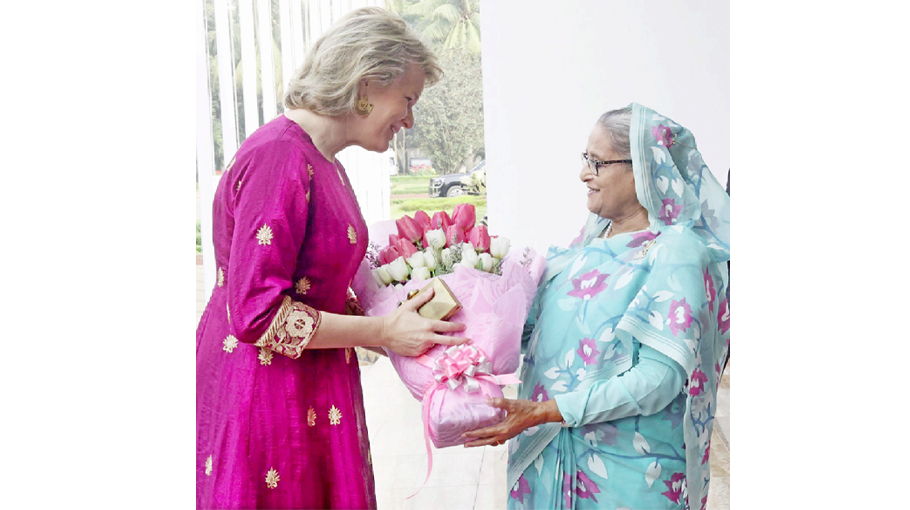Queen Mathilde concludes Bangladesh visit

The UN Secretary General’s Sustainable Development Goals (SDG) Advocate, the Queen of the Belgians Mathilde concluded her three-day visit to Bangladesh in the climate-vulnerable Khulna district on Wednesday.
During her visit, she saw the UN’s programmatic work covering several sustainable development goals including Climate Action, Gender Equality, Decent Work and Economic Growth, Responsible Consumption and Production, Quality Education, and others.
Her visit highlighted that the people of Bangladesh are the main drivers of the country’s development, the UN office in Dhaka said in a statement.
In the aftermath of the COVID-19 pandemic, recent global economic volatility and the devastating floods that hit the country in June last year, the visit refocused attention on the importance of the SDGs in building the resilience of communities and leaving no one behind.
In a statement, the Resident Coordinator of Bangladesh, Gwyn Lewis, noted her appreciation of the Queen’s visit: “in highlighting once again that progress towards the SDGs needs to be accelerated.”
She added that the United Nations and our partners will spare no effort to support Bangladesh in reaching the SDGs by 2030.
The Queen began her visit to Bangladesh at a garment factory in Narayanganj where the International Labour Organisation (ILO) is working with women to achieve equal rights, followed by a visit to a UNICEF ability-based accelerated learning centre in Dhaka that is helping children who have dropped out of school to catch up on their learning.
On the last day of her three-day visit to Bangladesh, the Queen visited a water treatment plant facility in Sutarkhali Union, an area that has been frequently hit by floods, cyclones, and was affected by salinity intrusion.
The water treatment plant provides clean water to about 1600 people of 400 households in the area and was opened in 2020 under the Local Government Initiative on Climate Change (LoGIC) project.
The Queen then took a boat ride to Jhulanta Para to see the impact of climate change and how local communities are adapting. Located on the banks of the Surkhali and Shibsa rivers, Jhulanta Para is being increasingly hit by floods and cyclones, as well as river erosion each year.
During her visit, the Queen also went to Cox’s Bazar to see the ongoing humanitarian response for the Rohingya refugees.
She met with Rohingya women, men, and youths, and volunteers working in the camps, and also visited various facilities supported by the UNHCR, the UN Refugee Agency, and its partners.
Mathilde ascended to the throne in 2013.
She is the honorary President of both Child Focus, a foundation for missing and sexually exploited children, and UNICEF Belgium.
In 2001, Queen Mathilde established the Princess Mathilde Fund (now the Queen Mathilde Fund) to promote the care of vulnerable people.
As an SDG Advocate, she is particularly focused on mental health.




